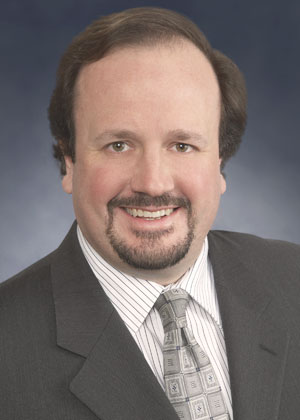It’s been more than a year since the RCMP and prosecutors landed their first — and only — big fish under the Corruption of Foreign Public Officials Act.

Calgary-based Niko Resources Ltd., a natural gas company, pleaded guilty in June 2011 to bribing Bangladesh’s then-energy minister. Observers heralded Niko’s $9.5-million fine as the start of a new era of enforcement against Canadian companies peddling corruption overseas.
Ever since, a small cadre of trade lawyers has been warning businesses in Canada to get ready for a wave of police investigations and audits and prepare their companies with full-fledged due diligence and compliance programs.
John Boscariol, who leads the foreign trade and investment law group at McCarthy Tétrault LLP, says the RCMP currently has more than 30 investigations underway by dedicated teams of white-collar crime detectives based in Ottawa and Calgary.
Presumably those include the RCMP’s probes into the activities of SNC-Lavalin Group Inc., the Montreal-based engineering giant that’s also facing litigation by investors in relation to its past activities in Libya and Bangladesh.
The Bangladesh case led to charges last April under the act against two former SNC-Lavalin employees.
Despite the recent activity, critics have wondered aloud whether Canada’s corporate law firms are being overly alarmist about the new anti-corruption climate, perhaps in an effort to wring lucrative fees from companies that do business overseas. After all, the act became law in 1998 and in all that time there have been only two convictions under it with Niko being the only major one.
“The legal industry has a new topic: corruption. And as deals slow down, law firms have to generate more fees,” said Bill Majcher, a former Mountie and now a private equity investor, while speaking on the Business News Network earlier this year.
“[The law firms] say, ‘Hey, pay us $100,000 and we’ll do due diligence for you and we’ll tell you as a company how to avoid this.’ I don’t know if the perception and reality quite match, to be honest with you.”
Boscariol says he understands why some are skeptical. It stems in part from the decade of federal complacency that followed the act’s passage into law. Reports for the Organization for Economic Co-operation and Development called Canada a “laggard” in its approach to foreign crimes of corruption. But finally, says Boscariol, Ottawa devoted police resources to the act and got serious about enforcing it following intense pressure from the United States.
“It’s really a question of what’s going to happen in the next year to 18 months,” he says. “If nothing happens, companies are going to think that lawyers are crying wolf here. But if we finally see some evidence of enforcement and some big pleas or convictions, I think then people will start paying attention and realize we’re not trying to scare them.
“My own feeling is we’re in early days still. We’re on the cusp of it. But the RCMP is promising that we’re going to see much, much more.”
Kristine Robidoux, a global business integrity lawyer with Gowling Lafleur Henderson LLP in Calgary, says Canadian firms operating overseas, particularly in high-risk regions such as Latin America and Africa but also more sophisticated economies such as Russia and China, need an anti-corruption compliance policy at the very least. That requires more than just a corporate promise not to engage in bribery.
“It means having a lot of training on that policy with frontline people,” says Robidoux. “I would say that’s the most important thing.
“You need to talk about this. You need a plan to communicate your policy, reinforce the message, and train people to respond in those kinds of situations. Employees are your first and best line of defence.”
Robidoux also says most potential corruption cases aren’t the result of outright bribery. Companies can still expose themselves to liability in other ways, for example, by using consultants with connections to government power-brokers or by contracting with state-owned entities that require the purchase of supplies, such as gasoline, trucks, and technical services, that results in kickbacks of Canadian money to them.
“We recommend that our clients conduct a risk assessment which takes into account things like, what’s your industry? Who are you contracting with? Are you going to be operating in a country that ranks high on Transparency International’s corruption perception index?” says Robidoux.
“We’ll look to the degree to which your contractor is going to be having interactions or not with public officials. All of those factors go into the mix. If you’re high on the risk continuum, we recommend more robust due-diligence procedures.”
The new anti-corruption enforcement landscape, which Robidoux describes as “rabid” in the United States, may also affect Canadian firms in deals with U.S. partners.
“When you’re doing business with U.S. companies, they’re starting to insist that you have a compliance program in place,” says Boscariol. “They’re asking for certification to ensure you don’t deal with certain countries.
“On the merger-and-acquisition side, an acquirer, often a U.S. company, says, ‘We want to see your compliance program, your anti-corruption control officers, and a list of all your overseas agents and consultants.’ We’ve seen acquirers simply walk away from deals because the U.S. authorities have fined acquirers for not doing the proper due diligence.”
The new legal landscape hasn’t erased the culture of corruption in many countries.
“You’re still going to be told, ‘This is how business is done here,’” says Boscariol. “There’ll be a huge amount of pressure to conform with that. It’s still endemic; it’s still going on.
“But change is coming.”

 Calgary-based Niko Resources Ltd., a natural gas company, pleaded guilty in June 2011 to bribing Bangladesh’s then-energy minister. Observers heralded Niko’s $9.5-million fine as the start of a new era of enforcement against Canadian companies peddling corruption overseas.
Calgary-based Niko Resources Ltd., a natural gas company, pleaded guilty in June 2011 to bribing Bangladesh’s then-energy minister. Observers heralded Niko’s $9.5-million fine as the start of a new era of enforcement against Canadian companies peddling corruption overseas.